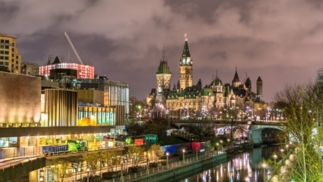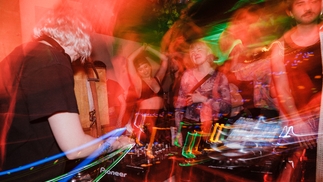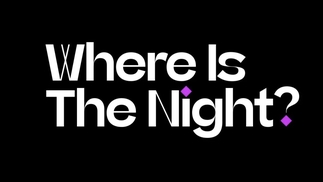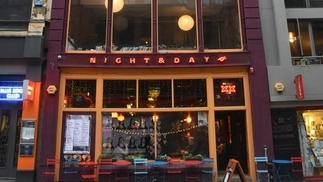Dublin City Council is hiring a Night Time Economy Advisor
The job is announced as Ireland awaits progress on reforming licensing laws
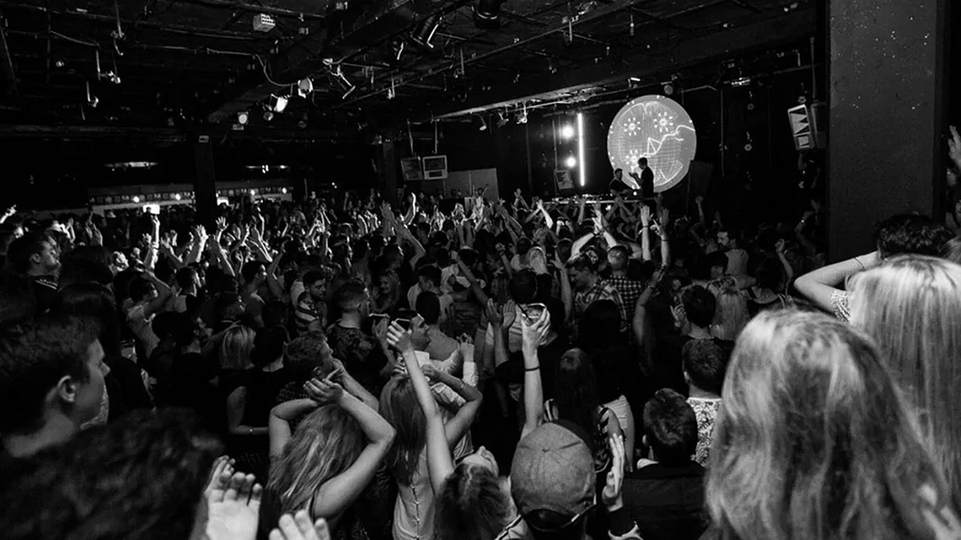
Dublin City Council is currently hiring for the city's first Night Time Economy Advisor.
Working in partnership with Night Time Economy Solutions (NTES), the council is seeking a candidate for a two-year permanent role with the objective of strengthening and broadening the appeal of the Irish capital's night life.
Per the job description, the Night Time Economy Advisor will be responsible for: establishing a Night-Time Economy Committee; reviewing existing funding structures at local and national level; highlighting challenges, opportunities and potential solutions; and developing a comprehensive action plan to drive the night time economy as well as supporting its implementation, among other tasks.
The news comes more than a year after Ireland launched a night time economy pilot programme, with specialist advisors representing pubs, bars, clubs and other venues in a bid to better support businesses.
Ireland’s venues and event promoters have for years struggled under costly and archaic legislation that has had a stranglehold on late opening times.
Currently, industry figures are awaiting progress on the Sale Of Alcohol Bill that aims to reform licensing laws. Among this, Give Us The Night (GUTN) campaigners have called for an end to Special Exemption Order (SEO) costs, referring to the €410 per-night fee nightclubs must pay to stay open until 2:30 AM.
In response to the news that a Night Time Economy Advisor will be hired, GUTN campaign co-founder Sunil Sharpe told DJ Mag: "Our initial proposal in 2019 to government, to create night-time advisor roles in Ireland, is what led to this position being created. So naturally we support it. It's our strong view that someone with active, hands-on experience within the sector should be appointed to this role, and not simply someone who is bouncing from one management position to another.
"There's a middle ground to be found between the aspirations of the council and the needs of our community and industry. If we can achieve that then it will certainly be a step in the right direction".
In August, Taoiseach Leo Varadker provided an update to say that the 6 AM late licensing laws, which began being drafted in October 2022, are now not expected to be implemented until well into 2024. Under the proposals, venues will be permitted to sell alcohol until 5 AM with a license, with dancing allowed to continue until 6 AM.
Sharpe called Varadker's recent comments “unhelpful” in an interview with RTE Radio 1, saying that the licensing changes have taken “far too long” as it stands. “I know he's trying to be honest, but talking about next summer, why do that, it just muddies the water.”
“We were told [in early 2021] worst case scenario, it would take two years", Sharpe added. "That was a conservative estimate, but the hope was it would be shorter than that. Now there's an extra year and a half being put on top of that. It really feels like we've been strung along here.”
Last month GUTN re-voiced its concerns about the government and Oireachtas delays over the bill and the SEOs.
“These costs reduce activity, opportunity and employment, and given the impact of rising running costs and insurance premiums, the idea that this government should continue with this system is hard to believe," it wrote on Instagram. "We have one main ask in the budget and that is to end these charges with immediate effect."
It added that the Bill was listed at the end of September in the government's Legislation Programme Autumn 2023, meaning that its publication could arrive before Christmas. “How soon it will then be enacted into law though remains to be seen (it will still have to be debated in parliament),” GUTN wrote.
Earlier this year clubs in Ireland were set to receive funding for soundproofing through a newly launched government initiative, which was hoped to help bolster chances of later opening times in the future. Overall, €2 million was ringmarked for eligible night clubs and venues. The scheme closes at the end of 2023.
Meanwhile, over the summer a group of Dublin music collectives and organisations began working together to open a new co-operative DIY venue following a string of Dublin venue closures.
Revisit DJ Mag's 2021 longread on the fight for the future of Irish clubbing and explore why the reality of the Night Time Economy elsewhere is far from straightforward.

